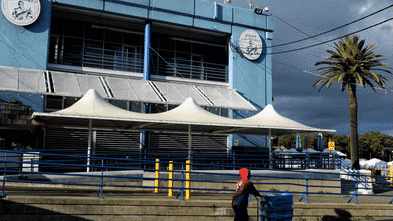The Israeli military has conducted a targeted operation resulting in the death of Hezbollah’s top military official, Haytham Ali Tabtabai. This strike occurred on the outskirts of the Lebanese capital, Beirut, despite a ceasefire that has been in place for nearly a year. The death of Tabtabai, confirmed by both the Israeli military and Hezbollah, marks a significant escalation in the ongoing conflict between the two factions.
Israeli forces announced Tabtabai’s killing, referring to him as a “great jihadist commander” who had dedicated his life to confronting the Israeli military. His death comes after a period of intense conflict that took place between October 2023 and November 2024, when a US-brokered truce aimed to stabilize the region. During that war, Israel systematically targeted Hezbollah’s leadership, eliminating many high-ranking officials.
Born in 1968 to a Lebanese mother and an Iranian father, Tabtabai was part of Hezbollah’s “second generation.” Although he was not one of the founding members, he joined the group in the 1980s and held various senior positions, including leadership roles in the elite Radwan Force. The Israeli military’s statement highlighted that he led Hezbollah’s operations division during last year’s conflict and was promoted to chief of staff following the deaths of other key commanders.
Israel had previously placed sanctions on Tabtabai in 2016, identifying him as a significant figure within Hezbollah and offering a reward of up to $5 million (AUD 7.8 million) for information leading to his capture. The recent operation not only targeted a prominent Hezbollah leader but also resulted in civilian casualties, with at least four individuals killed and around two dozen others injured. Medical sources reported that the injured were taken to nearby hospitals for treatment.
Following the ceasefire, Tabtabai worked to bolster Hezbollah’s military capabilities, preparing for potential future conflicts with Israel. His swift promotion within the organization underscored the ongoing instability and the precarious balance of power in the region. As tensions continue to simmer, the implications of this strike on the future of Israeli-Hezbollah relations remain uncertain.
The situation in Lebanon, and its implications for regional security, continues to evolve. The assassination of a key military leader is expected to escalate tensions further, potentially leading to renewed hostilities in a conflict that has already claimed thousands of lives and displaced countless others.

































































